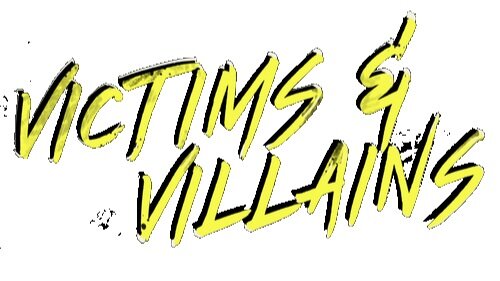Many people know Orson Welles as the star and director of the film that is sometimes called the greatest film ever made, Citizen Kane, but most people know probably know almost nothing else about the man. I learned, thanks to this documentary, that “American” was the working title of the film that became Citizen Kane, for example, and that it was called that for quite a long time, because no one could figure out a better name for it. Something that also wasn’t super clear to me from the start was the significance of the year 1947, which it turns out, is somewhere around when Welles decided to leave the United States, going into self-imposed exile in Europe for the next twenty years. The film takes a historic approach to the meteoric rise and fall of Welles, from his birth, some of his childhood, and his early education into how exactly it prepped him for directing plays to amazing critical success, the mixed reaction to Citizen Kane, and the eventual witch hunt at the hands of the FBI and President Harry Truman’s Executive Order 9835, which subjected all federal employees to “loyalty tests”. On the surface level, that executive order, which led to McCarthyism in the 50s, has very little to do with an actor/director/orator, except that Welles got himself so heavily involved with the government, he at one point debated Franklin Delano Roosevelt’s opponent during an election cycle, owed most of his experience as a director to a government-funded theater program, and created films as propaganda for the WWII war effort.
The documentary tells the story of Welles’ rise and fall using footage, audio, and interviews to paint a picture of not only Welles, but also the time he lived in on his odyssey to 1947. While most of the material is deliberately oriented around Welles, some of it emphasizes what was going on in society around Welles, including testimony from family of Isaac Woodard, a young WWII veteran who was subjected to racial abuse which left him blind, and interviews with relatives of those who lived through the imprisonment and mistreatment of Japanese Americans during WWII and an actual survivor account from the bombing of Hiroshima. Woodard’s story is included because following his abuse and recovery, he could not identify his assailant, leading the NAACP to approach Welles to ask for his help via his ABC radio broadcast, Orson Welles Commentaries, which eventually led to the identification and indictment of the police chief responsible. The man was eventually acquitted by an all white jury after action from the government led by President Truman brought the man to justice.
Not really knowing much about Welles at all to begin with, (and I’m ashamed to admit I’ve never even seen Citizen Kane, despite its reputation) I wasn’t sure what this documentary would be about. I had a small inkling that maybe Welles was featured from the studio provided blurb about the film, but nothing about the title told me what it would be. However, it was well worth the gamble. The documentary paints a great picture of the first half of Welles’ life and the circumstances surrounding it, going into the interesting duality of the lasting impact of Citizen Kane yet its relative lack of success at the time, and even dipping into Welles’ time creating after WWII and exploring his alienation and eventually decision to travel to Europe. If you’re interested in the history or biographies of directors, actors, or other famous people, this one deserves a spot on your watchlist.
Rorshach Rating:
Mental Health Moment: Something that really stood out to me in the mix of Welles life and all the things that seemed to come against him in his quest for success was that Welles, while he might not have known exactly what he wanted to do early in life, never gave up looking for a creative outlet. Even in the face of mass criticism and persecution at the hands of media executives and those hunting for communists, he continued to seek outlets until he finally decided to leave America. When you are facing adversity, look for different angles and perspectives on your situation - you may have more outlets and possibilities than you ever realize if you can take the time to really look at where you find yourself, and sometimes that outlet is exactly the breath of fresh air you need to keep going.
If you or someone you know is reading this right now and struggling with suicide, depression, addiction, or self-harm - please reach out. Comment, message, or tweet at us. Go to victimsandvillains.net/hope for more resources. Call the 988 Suicide and Crisis Lifeline at 988, or 1-800-273-8255. Text "HELP" to 741-741. There is hope & you DO have so much value and worth!
Victims and Villains is written (and produced) by Josh "Captain Nostalgia" Burkey and others, and edited by Cam Smith. Music by Mallory Johnson and others. American: An Odyssey to 1947 is property of Maple Road Pictures; we do not own nor claim any rights.
You can now support us on Patreon. Help us get mental health resources into schools and get exclusive content at the same time. Click here to join today!


